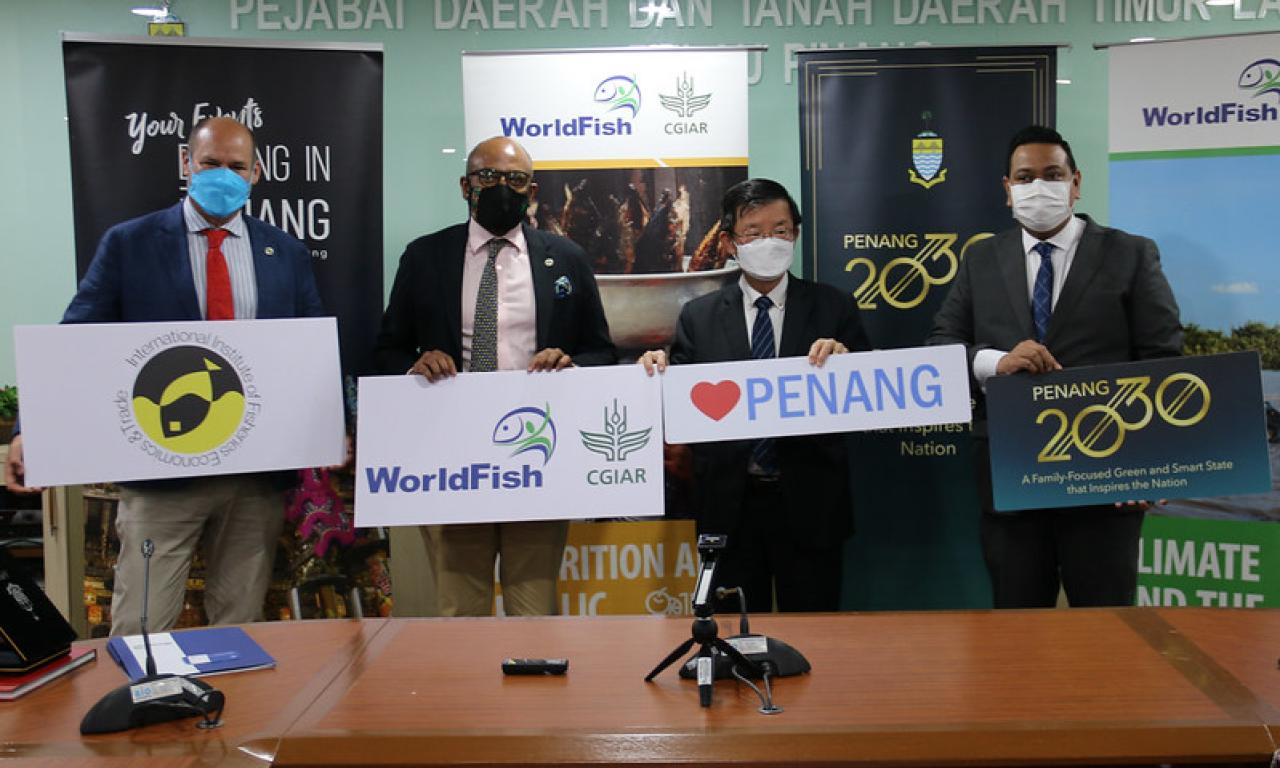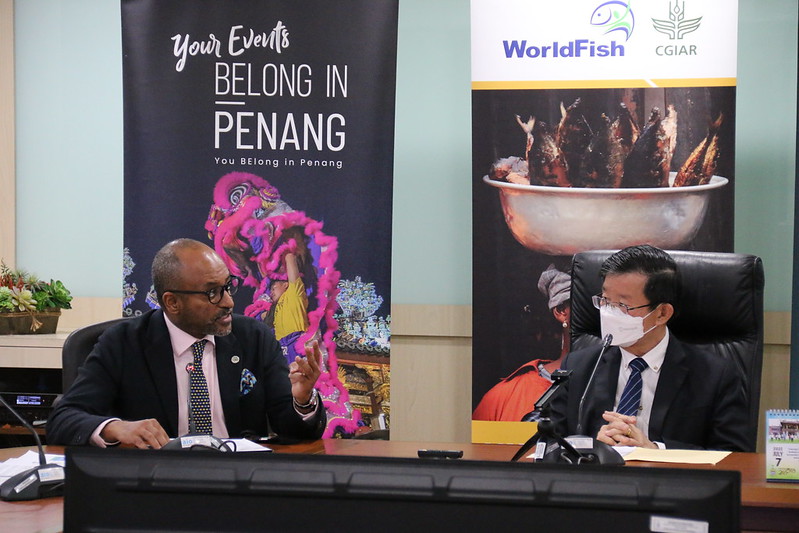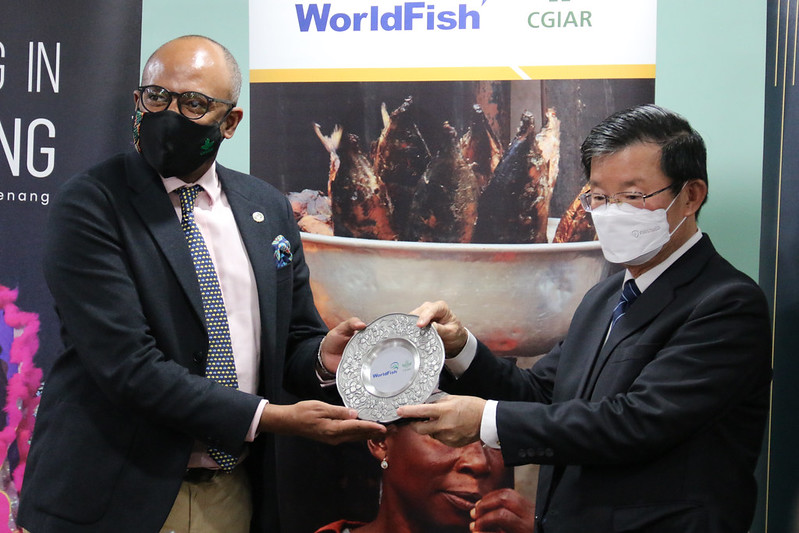
- The presence of hundreds of attendees, both domestic and foreign, is projected to boost Penang’s tourism sector, which has been badly impacted by the COVID-19 pandemic.
- The state government sees the convergence of fisheries experts in Penang as a golden opportunity for Malaysian researchers and policymakers to network and learn ways in developing the fisheries and aquaculture sectors in Penang.
- The increasing production of aquatic foods in Penang has helped ensure Penangites have access to a sufficient supply of affordable, easily available and nutritious food while reducing the country’s reliance on costly food imports which amounted to more than $12 billion in 2020.
Penang Chief Minister Chow Kon Yeow congratulated WorldFish for winning the bid to host the 21st edition of the International Institute of Fisheries Economics & Trade (IIFET) conference at a press conference in KOMTAR, Penang recently.
In collaboration with the Department of Fisheries Malaysia and local universities such as Universiti Sains Malaysia and Universiti Putra Malaysia, WorldFish is scheduled to host the biennial conference in July 2024.
“The presence of hundreds of attendees, both domestic and foreign, will undeniably boost Penang’s tourism sector, which has been badly impacted by the COVID-19 pandemic. We are seeing encouraging signs of the industry’s resurgence and business events such as IIFET 2024 will help restore Penang’s tourism luster,” said Chow.
Bringing together experts from around the globe

The biennial conference that brings together fisheries social scientists, managers and industry leaders from every fishing region around the globe will be held in Asia for the first time since Nha Trang, Vietnam in 2008 and Taipei, Taiwan in 1994.
“With Asia accounting for 70 percent of the total fisheries and aquaculture production of aquatic animals in 2020, it makes a lot of sense for IIFET to be held in Asia,” shared Essam Yassin Mohammed, WorldFish interim director general.
The state government sees the convergence of fisheries experts in Penang as a golden opportunity for Malaysian researchers and policymakers to network and learn ways in developing the fisheries and aquaculture sectors in Penang.
“Malaysia is very much a maritime nation with a coastline nearly 4,700 kilometers long. The fisheries industry in Penang, particularly its aquaculture activities, has expanded significantly since 2008 and is a major contributor to the country. As of 2014, Penang’s aquaculture production had overtaken capture fisheries and marine landings, with an annual value of more than $200 million,” added Chow.
Ensuring food and nutrition security in the region

The increasing production of aquatic foods in Penang has helped ensure Penangites have access to a sufficient supply of affordable, easily available and nutritious food while reducing the country’s reliance on costly food imports which amounted to more than $12 billion in 2020.
“This will undoubtedly contribute to the stability of food prices and future production that exceeds domestic demand can be exported to boost Penang’s Gross Domestic Product, not to mention the plethora of other benefits and multiplier effects that aquatic foods offer,” said Chow.
More than 800 million people – half of which are women – earn a living from fish and other aquatic foods grown in and harvested from oceans, lakes, rivers and ponds. Aquatic foods supply 3.3 billion people with 20 percent of their animal protein needs. Small fish, shellfish and seaweed in particular have enormous nutritional value with a lower environmental footprint than land-based animals.
“Sustainable management of aquatic animals and plants means stored carbon dioxide that would have otherwise been released into the atmosphere – delivering a triple win for nature, climate and people,” said Mohammed.
